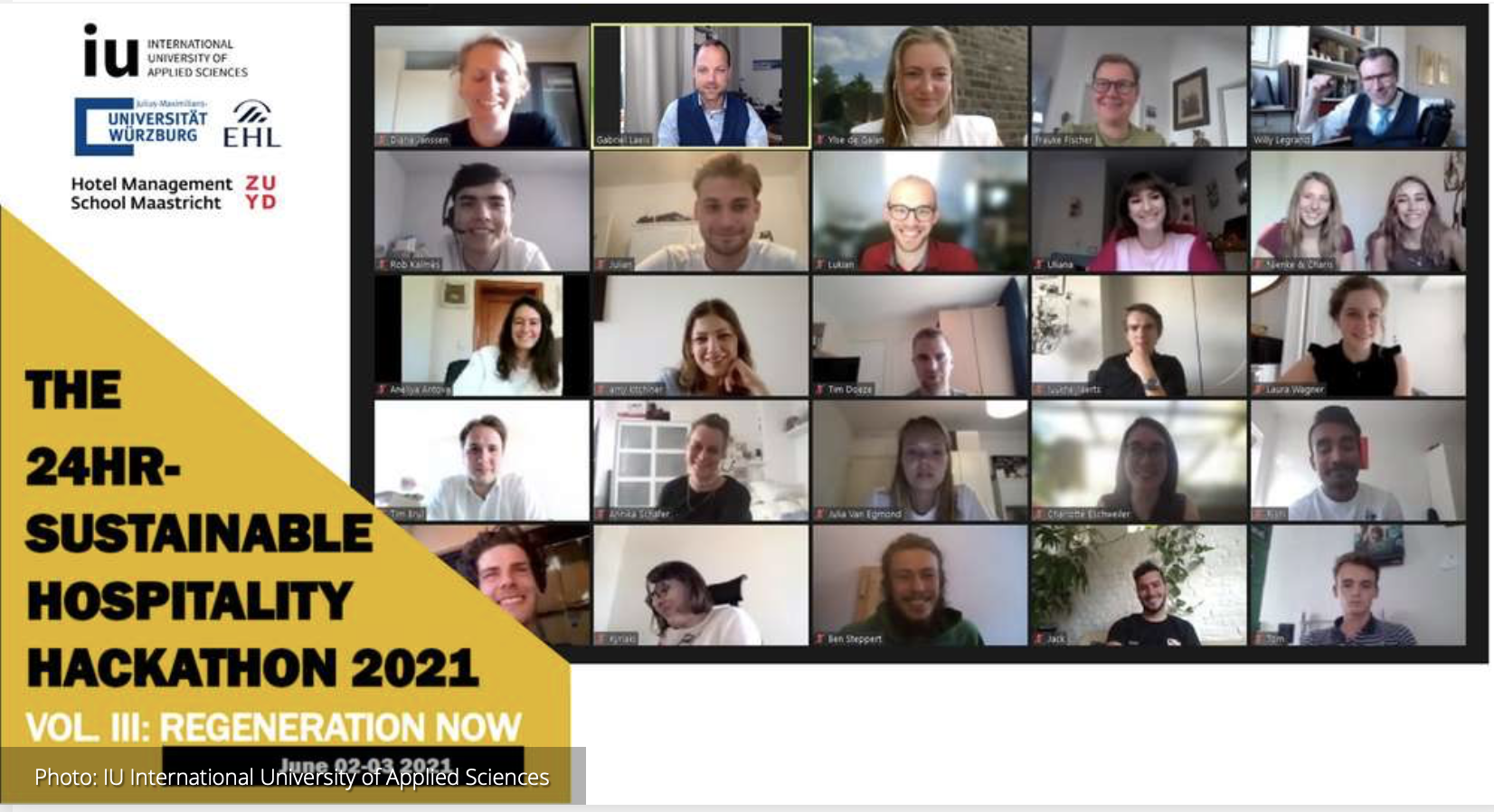By Julia Rawlins
Regeneration Now was the third edition of a Sustainable Hospitality Hackathon which took place immediately ahead of the Launch of the UN Decade on Ecosystem Restoration. On 2nd and 3rd, June over 80 students from different European universities came together online to tackle the imperative for the hospitality industry to bounce forward rather than to return to pre-pandemic modes of operation.
LT&C members Dr Frauke Fischer and Julia Rawlins were involved as speakers and were delighted by the energy and enthusiasm of the participants, and are very grateful to the Lead Organiser, Prof. Willy Legrand (Professor of Hospitality Management at the IU International University of Applied Sciences, Germany), for his outstanding moderation and organisation of the event.
Closing the first day, Dr. Fischer presented ‘The Business Case for Biodiversity’. Following a review of the basic terms around biodiversity and ecosystem services, Frauke presented some of the distressing facts about the sixth mass extinction and argued that, considering the value of biodiversity (including economic) “we have to fear to go biologically bankrupt!”. With the case of PERÙ PURO, she explained the computability between protection and enhancement of biodiversity, farming and business.
Julia’s input ‚Linking Tourism and Conservation – why unusual alliances are key‚ highlighted the range of creative partnerships that can be developed between nature-based tourism and other sectors, for example, academia, education/culture, retail, social causes and rewilding. Collaboration is key to achieving progress on the SDGs and LT&C examples demonstrate how new forms of partnership can lead to mutually beneficial impacts. We need to bridge the tourism and nature conservation sectors, and this starts by creating connections between students and their separate disciplines. While there are clear possibilities in bending the carbon emissions curve over the next 10 years, the extinction of fauna and flora is irreversible. The hospitality industry is active across all ecosystems, from greening urban areas, rewilding gardens and cleaning up our rivers, it plays a very important role in society and communities, so it is equally about individual actions as it is a civic duty as it is a business responsibility. One of the main outcomes of this hackathon is the general understanding that the viable pathway forward is transformation. Aligned in the regeneration context, it is, fundamentally, a radical shift in the value system. We need a green inclusive recovery, so let us Build Forward Better – Together – Now!
For more information, please see https://www.hospitalitynet.org/opinion/4104790.html.



